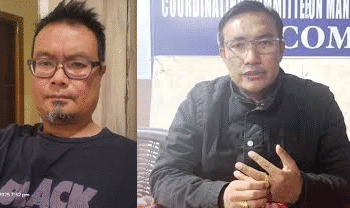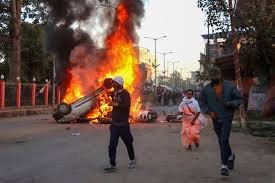When J&K has an elected government with an absolute majority, bypassing it to let the LG handpick members is not governance, it’s contempt for the people’s mandate
By PC Bureau
Political parties in the Kashmir Valley have accused the Central Government of undermining democratic principles by granting the Lieutenant-Governor (LG) of Jammu and Kashmir (J&K) the power to nominate five members to the J&K Legislative Assembly without the “aid and advice” of the elected government.
The move, outlined in an affidavit filed by the Union Ministry of Home Affairs (MHA) in the J&K High Court on July 24, 2025, has sparked widespread criticism, with leaders calling it a dangerous precedent that subverts the people’s mandate.
The controversy stems from amendments to the J&K Reorganisation Act, 2019, introduced in 2023, which allow the LG to nominate three members—two Kashmiri migrants (including one woman) and one from the Pakistan-occupied J&K (PoJK) community—along with two additional women if the LG deems female representation inadequate.
The MHA’s affidavit asserts that these nominations are a statutory function of the LG, independent of the elected government’s input, stating, “Once the Parliament bylaw recognises the Lieutenant-Governor as a distinct authority… it necessarily follows that when a power is conferred upon the Lieutenant-Governor, then the same must be exercised as a statutory function and not as an extension of his duties as the head of the UT Government… without aid and advice.
”Tanvir Sadiq, a close aide of Chief Minister Omar Abdullah and chief spokesperson of the Jammu and Kashmir National Conference (JKNC), condemned the move as “contempt for the people’s mandate.”
He argued, “When J&K has an elected government with an absolute majority, bypassing it to let the LG handpick members is not governance, it’s contempt for the people’s mandate. This directly strikes at the heart of parliamentary democracy, ignores the constitutional spirit of ‘aid & advice,’ and sets a dangerous precedent where unelected appointees can rewrite the people’s verdict.”
The issue is under legal scrutiny following a public interest litigation (PIL) filed by Congress leader Ravinder Kumar Sharma, challenging the amendments.
On October 21, 2024, the J&K High Court sought the Union government’s response, questioning whether Sections 15, 15-A, and 15-B of the J&K Reorganisation Act, 2019, violate the Constitution’s basic structure by potentially altering the Assembly’s composition to convert a minority government into a majority or vice versa.
Former Chief Minister and People’s Democratic Party (PDP) chief Mehbooba Mufti also voiced strong opposition. In a post on X, she stated, “GOI’s decision to nominate 5 MLAs in J&K after holding elections is a blatant subversion of democratic principles. Nowhere else in the country does the Centre handpick legislators to override the public mandate. In India’s only Muslim-majority region, long marred by conflict, this move feels less like governance and more like control.” She further criticized the move as part of a series of undemocratic actions, including the “illegal bifurcation of the state, skewed delimitation, and discriminatory seat reservations.” Mufti urged the Omar Abdullah-led government to challenge the precedent, warning that “silence now would be complicity later.”
The controversy has reignited debates over the balance of power in J&K, with critics arguing that the Centre’s actions erode the region’s democratic autonomy. As the High Court continues to hear the case, the political fallout is likely to intensify, with regional parties rallying against what they see as an overreach by unelected authorities.












